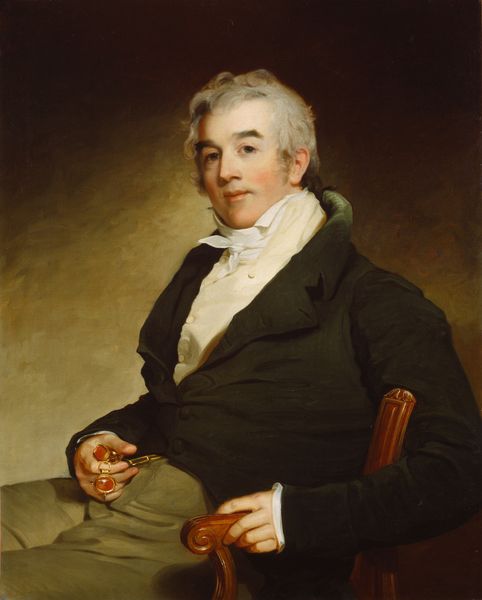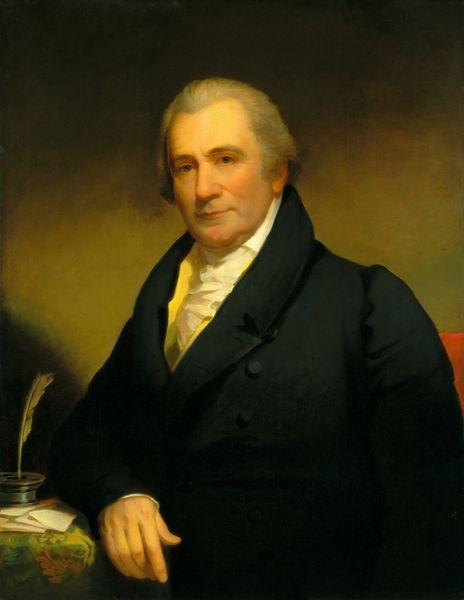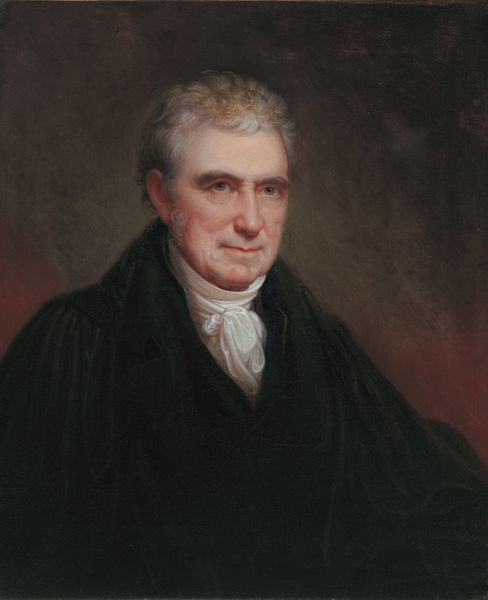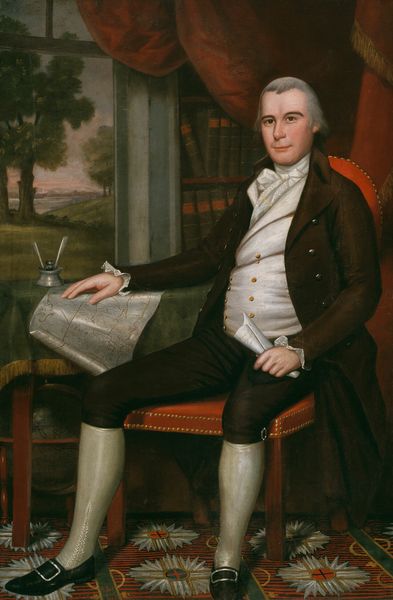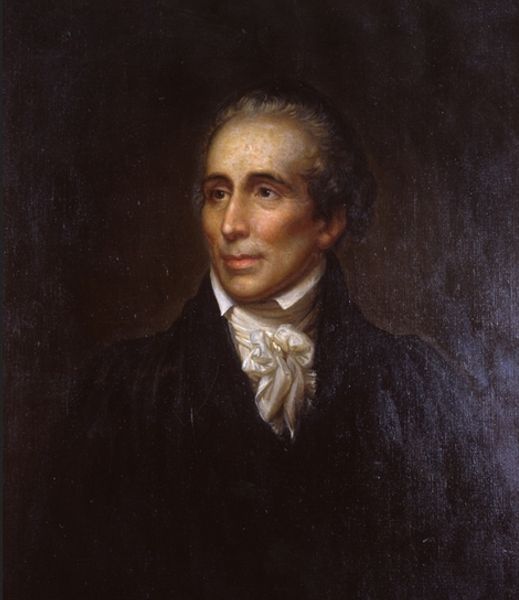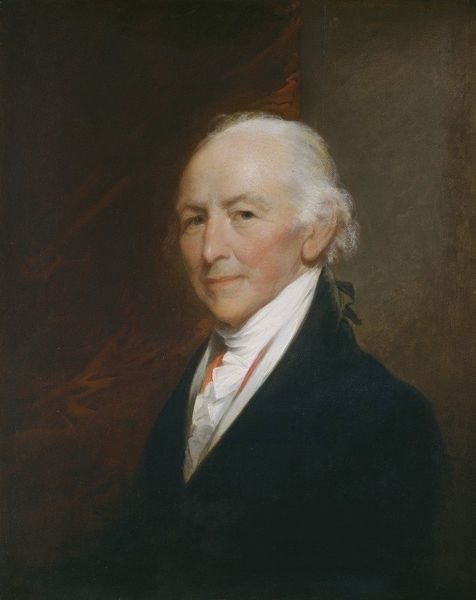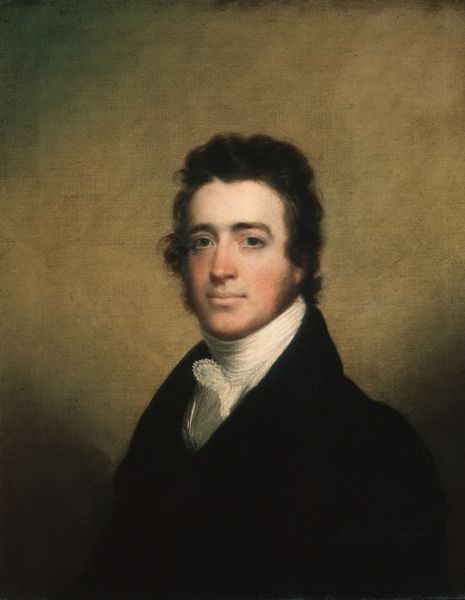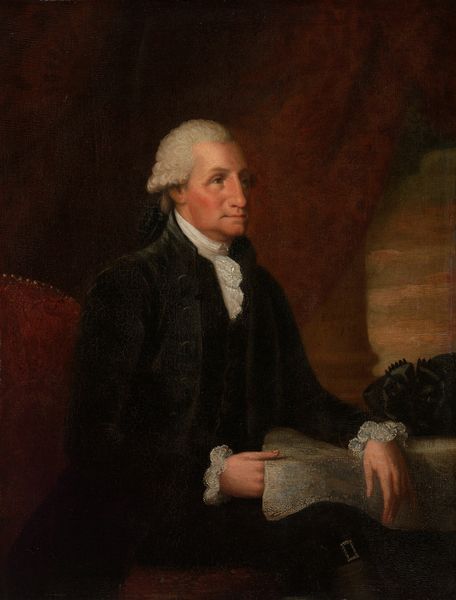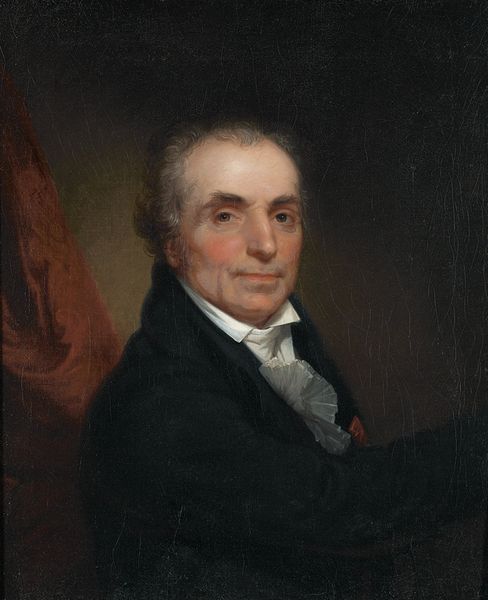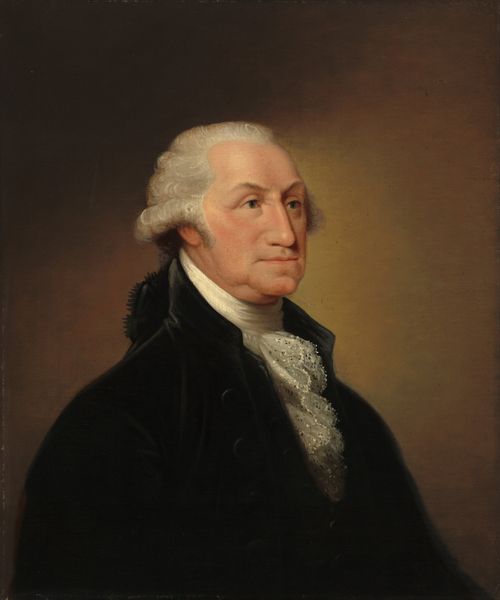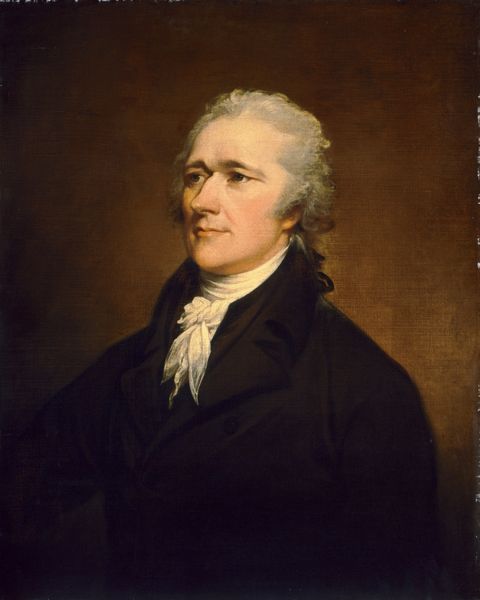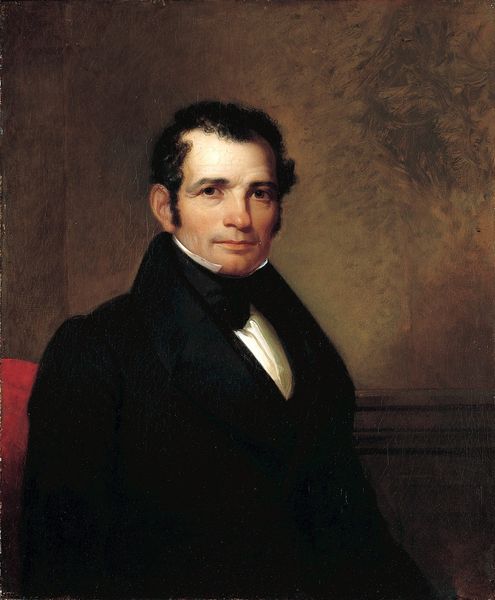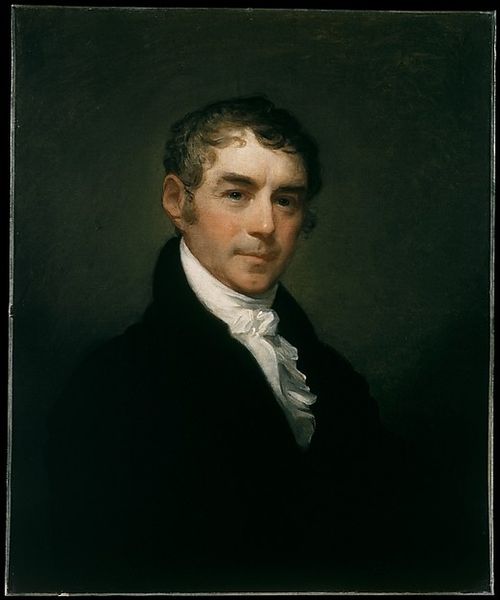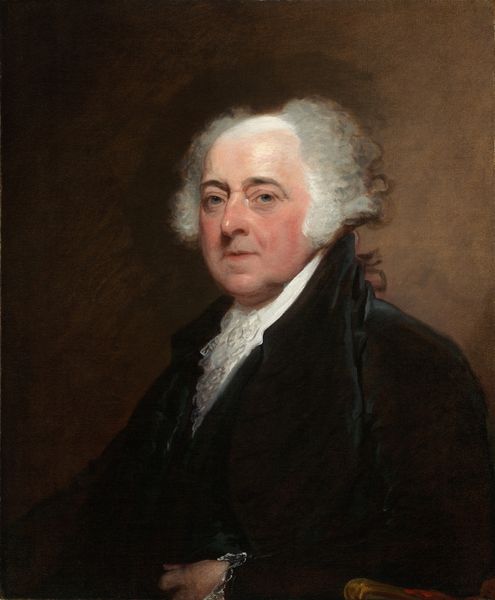
painting, oil-paint
#
portrait
#
neoclacissism
#
painting
#
oil-paint
#
history-painting
Copyright: Public domain
Samuel Morse's portrait of Noah Webster presents us with a key figure in the shaping of American identity. Webster was a lexicographer, textbook pioneer, English-language spelling reformer, political writer, and editor. His "American Spelling Book" and his dictionary were crucial in codifying and standardizing the American language, creating a sense of national cultural unity in the early republic. This portrait, though, speaks to the cultural elite. It’s a dark, formal, academic depiction, fitting for a man deeply connected to Yale University, where this artwork resides. Note Webster's somber expression and the letter in his hand, perhaps alluding to his scholarly pursuits. It subtly reinforces the importance of education and intellectualism, values championed by institutions like Yale. Historians delve into Webster's writings, correspondence, and the context of early American education to fully understand the portrait's nuances. The image becomes more than a likeness; it's a window into the cultural and institutional forces that shaped a nation's identity.
Comments
No comments
Be the first to comment and join the conversation on the ultimate creative platform.
